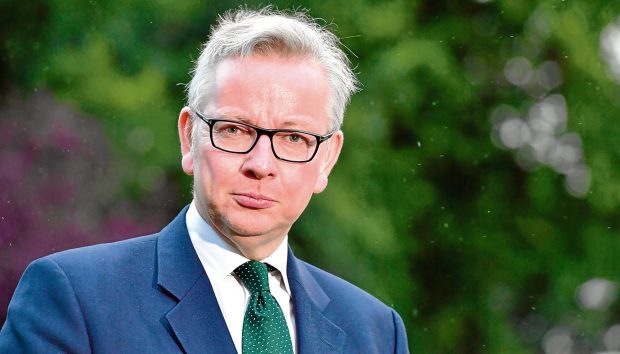Subsidy support for farmers and crofters will continue for the foreseeable future, Defra Secretary Michael Gove confirmed yesterday.
Speaking following meetings with members of the farming and fishing communities at the James Hutton Institute in Aberdeen, Mr Gove said: “There will definitely be subsidy support post 2020.”
Government has already confirmed the continuation of current subsidy levels until 2022, and Mr Gove said support would be available beyond that date to help “protect productivity” and the environment.
He was unable to provide concrete details on the shape of future agricultural policy, but said he envisaged an overarching UK-wide framework as well as specific policies for Scotland, England, Wales and Northern Ireland.
“We are hoping to say more before Christmas about the future direction of travel and we want to bring forward an English agriculture Bill in the late spring of next year,” said Mr Gove.
“In designing that Bill, it will have an impact on the other parts of the UK.”
He said the English Bill would outline some of the principles about how Government hoped to allocate agricultural funding in the future.
However this could only be achieved once all parties involved from across the UK had reached agreement on future plans.
“It will work best if we have reached a broad agreement on what should be exercised at a UK level and a devolved administration level,” added Mr Gove.
“I have no wish to do anything other than see the Scottish Government continue to have the powers it has and in due course take on more responsibilities.”
Mr Gove said future policy should be shaped by those at the “sharp end” producing and processing food, and not just government officials.
On the thorny issue of convergence uplift, Mr Gove seemed reluctant to pursue promises by his predecessors to resolve the issue.
Convergence uplift is money totalling around £190million which was allocated to the UK from the EU to bring Scotland’s per hectare subsidy support figure more in line with the European average.
Scottish Government and industry have long argued that Defra failed to give the money to Scotland.
Mr Gove said he understood the frustrations felt by the Scottish farming industry but hinted it may not be possible to deliver the money to Scotland.
“It’s very difficult to unscramble an omelette,” said Mr Gove.
“I understand why people feel that the position was not right. That was in the past and that money has been baked into the current system. I want to make sure that we bear in mind that Scottish farmers feel that way when we develop any new method of support.”
